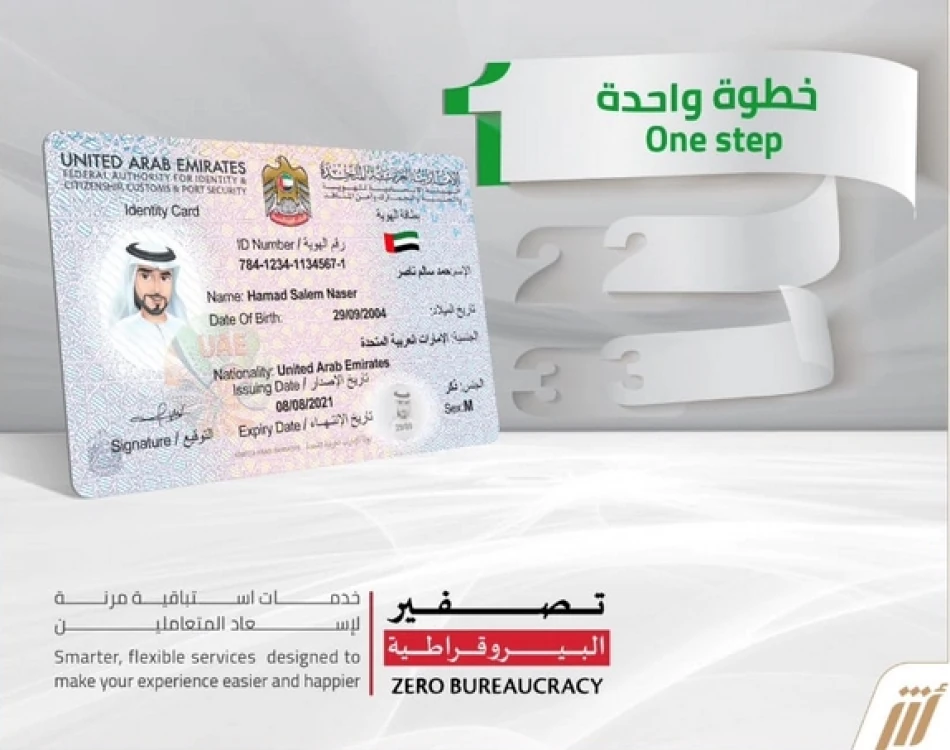
One-Step Transformation: Identity and Citizenship Authority Enhances Identity Renewal and Replacement Services
UAE Streamlines National ID Services with One-Click Renewal System
The United Arab Emirates has launched a simplified digital identity card system that consolidates multiple bureaucratic steps into a single process, automatically determining validity periods based on the holder's age. This marks another milestone in the UAE's broader digital transformation strategy, positioning the country as a regional leader in government digitalization.
Simplified Process Mirrors Passport Services
The Federal Authority for Identity, Citizenship, Customs and Port Security announced that both replacement and renewal of Emirati national identity cards can now be completed through a streamlined one-step procedure. The new system automatically calculates the card's validity period based on the applicant's age, following the same methodology already used for passport services.
This automation eliminates the previous multi-step verification process that required citizens to navigate through several bureaucratic layers, potentially reducing processing times from days to minutes.
Strategic Context: UAE's Digital Government Vision
The identity card reform aligns with the UAE's ambitious Vision 2071 program, which aims to make the country the world's best nation by its centennial. The initiative reflects a broader pattern of administrative modernization that has seen the UAE consistently rank among the top performers in global digital government indices.
Since 2017, the UAE has systematically digitized government services, with over 90% of federal services now available online. This latest move addresses one of the most fundamental citizen-government touchpoints, potentially affecting all 1.5 million Emirati citizens.
Regional Competition and Global Benchmarking
The UAE's approach puts it ahead of regional competitors in administrative efficiency. While Saudi Arabia has made significant strides through its Vision 2030 digital transformation, and Qatar has modernized many services ahead of the 2022 World Cup, the UAE's comprehensive approach to identity services sets a new regional standard.
Globally, the system resembles digital identity initiatives in Estonia and Singapore, countries that have successfully integrated government services into unified digital platforms. However, the UAE's age-based automatic validity determination adds a layer of algorithmic efficiency that reduces human intervention.
Economic and Social Implications
For citizens, the streamlined process translates to reduced time costs and fewer government office visits. For the government, it represents significant operational savings through reduced staffing requirements and faster service delivery.
The move also supports the UAE's position as a global business hub by demonstrating institutional efficiency to international investors and expatriate professionals who often evaluate countries based on administrative ease. As the UAE competes with Singapore and Hong Kong for regional headquarters, such administrative innovations become competitive advantages in attracting multinational corporations.
The timing is particularly strategic as the UAE prepares to host COP28 and continues positioning itself as a post-oil economy leader. Efficient government services become crucial infrastructure for the knowledge economy the country is building toward its 2071 vision.
Most Viewed News

 Layla Al Mansoori
Layla Al Mansoori






